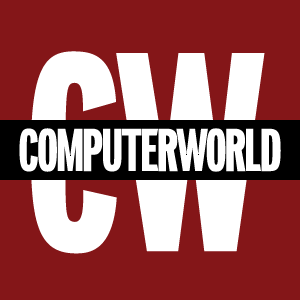I’m the kind of person who runs computing hardware until it’s dead, dead, dead.
I mean, I still have a 1984 KayPro luggable that boots. I keep that one because of nostalgia, but I also have more than a dozen Macs and PCs that first saw the light of day in the late 2000s and early 2010s, still doing valuable work.
How? I run Linux on them.
While Linux isn’t for everyone, with Google’s release of ChromeOS Flex, it’s now easy to turn an otherwise obsolete computer into a useful Chromebook.
This can be really useful.
For example, I know many businesses have rooms filled with old, dusty PCs. ChromeOS Flex can give them new life. That, in turn, enables you to cut down on computer costs drastically. For example, a new Dell OptiPlex 3000 Small Form Factor business PC will cost you about $1,000. But a Dell Optiplex 3020 from 2013 that ran Windows 7 can be revitalized with ChromeOS Flex for nothing.
Zero, zilch — that’s how much Google charges for ChromeOS Flex. Of course, you still need to install the OS using either a USB key drive or over a network, but it’s not hard to do.
In my first effort on the aforementioned 3020 PC, using a USB drive for the installation, I needed only a half hour from start to running my Google Workspace desktop.
Now I’m an expert at installing operating systems — you get that way when you’re a Linux user — but, trust me, anyone can do this.
Once installed, it’s child play to sync user settings and policies to the device. It also takes about a minute. With a small office, you could have everyone on staff running ChromeOS Flex in less than a day.
And, since ChromeOS Flex, like Chromebooks, only requires its users to know how to run a web browser, there’s no learning curve. As a result, you can increase productivity without hardware costs and with minimal downtime.
ChromeOS Flex is also more secure than macOS or Windows; almost no viruses or malware target it. And, even if or when attacks start showing up — hackers gonna hack — remember: ChromeOS Flex is refreshed every few weeks, so there’s minimal time for an attacker to hit your users.
In a Google case study, after a ransomware attack shut down operations, Nordic Choice Hotels used ChromeOS Flex to replace its compromised PCs’ operating systems and get them back online. “ChromeOS Flex enabled Nordic Choice Hotels to turn a disaster into an upgrade. With a one-page guide and a USB, employees across 200 Nordic Choice hotels in Scandinavia were able to convert 2,000 computers in under 48 hours, protecting their business from a costly shutdown.”
As Bjørn Arild Wisth, Nordic Choice Hotels’ Deputy CEO, said: “Deployment of ChromeOS Flex really saved us.”
I believe it. ChromeOS Flex is fast, simple, and safe.
You can use Chrome Enterprise Upgrade to manage all your new ChromeOS Flex boxes. This provides a simple and secure way to manage all your devices in the admin console. (You can try out the admin tools for free to see if the setup works for you on up to 50 machines for 30 days.)
If you decide to buy it, you must first get a Google Workspace subscription for your devices. This starts at $6 per month per user, with the MSRP of Chrome Enterprise Upgrade costing $50 per device per year. For all but the smallest companies, Google recommends you work with a Google partner.
By comparison, Microsoft 365 for Business Premium, which won’t even work on older hardware, costs $22 per user per month. True, there are cheaper versions of Microsoft 365, but they don’t come with e-mail or a calendar. As far as I’m concerned, both are essential for business.
So, if you want to save money on PCs and your desktop software, I highly recommend giving ChromeOS Flex a try.
Of course, it’s not for everyone.
If you’re stuck with a Windows or Mac-specific, mission-critical program, ChromeOS Flex isn’t the right solution.
But, if your business just needs basic office software functionality and access to Software-as-a-Service (SaaS) programs, ChromeOS Flex could be just what you need — especially if you have a bunch of dusty PCs and Macs lying around.
Copyright © 2022 IDG Communications, Inc.

